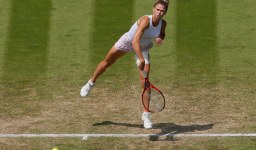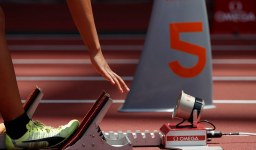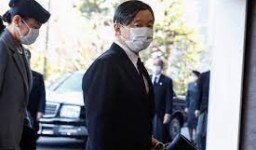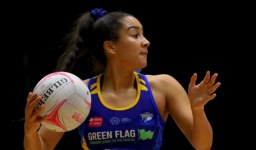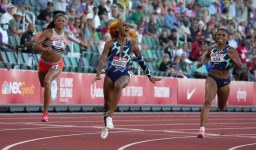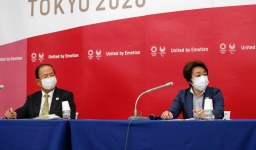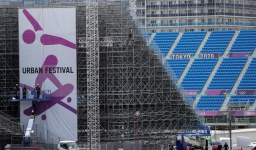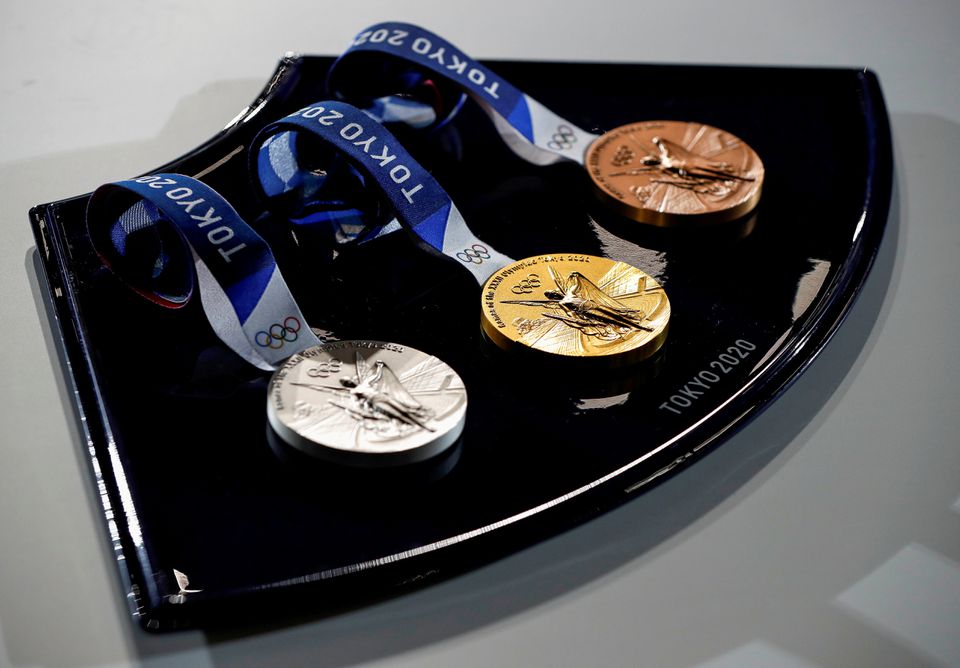
Helen Coster
June 24 (Reuters) – When NBCUniversal airs the Tokyo Olympics next month, expect coverage from a new type of “venue” far from the action at the pool or court. It could be a living room, a bar, or Main Street back home.
As the world emerges from a pandemic, NBCUniversal is crafting programming to compensate for an Olympic Games bereft of international visitors by attempting to bring spectators closer to the action and highlight the emotions of families unable to cheer on their loved ones from up close and in person.
“In the past (when an athlete wins) we would cut away to a relative in the stands, and instead we’re cutting away to a living room in Illinois,” said Molly Solomon, executive producer and president of NBC Olympics Production.
“So it’s similar, but different. But I think it’s indicative of the pivot we had to make because of the pandemic and because of the restrictions.”
The Comcast-owned (CMCSA.O) company – which paid $7.65 billion to extend its U.S. broadcast rights for the Olympics through 2032 – is framing these Games as a “healing” event for viewers, despite skepticism from many Japanese citizens about the wisdom of holding even a scaled-down Games during a pandemic.
The global health crisis sparked creation of a new “Friends and Family” production unit that will capture the reactions of loved ones and communities back home to the athletes’ victories and disappointments.
The unit will also cover athletes’ U.S. “homecoming” after an abbreviated stay abroad, due to pandemic rules that require them to depart Japan within 48 hours of their last event.
“We just think it’s vital to make sure if Americans can’t go to Tokyo, how do we bring America to Tokyo?” Solomon said.
NBC will use this year’s smaller crowd sizes – capped at 50% of capacity or 10,000 spectators per venue – to make the experience more intimate for its viewers.
The company re-engineered its sound design plan – placing microphones as close to the action as possible – to emphasize “field of play effects” in the heat of competition that are typically drowned out by the roar of the crowd.
“Imagine screeching on a basketball court,” said Solomon. “If there was a lot of crowd, you just wouldn’t hear that. With somewhat fewer people it’s an opportunity that we’re going to work with.”
Sound engineers are also strategically placing microphones around the venues to maximize the spectators’ reactions for viewers at home.
To provide more context for the smaller crowds, alcohol ban and other restrictions at venues, NBC’s show before the July 23 opening ceremony will address the current state of affairs in Japan, where less than 9% of citizens have been fully vaccinated against COVID-19.
After that, the company will decide on a daily basis how it addresses the pandemic, with a focus on how it affects the athletes, Solomon said. This time around, coronavirus testing will be as much a part of the Games as doping tests.
“If there’s issues, if there’s athletes testing out, of course we’re going to cover the news,” she said. “Our primary objective is to cover the sports that are happening, but how COVID impacts the Olympics, obviously, is part of the storyline.”
A Ugandan athlete and a coach have already tested positive for COVID-19 after arriving in Japan. read more
For broader framing of the Olympics, the company is focusing on recovery from the pandemic, a status not shared by much of the world or Japan, but a new reality for NBC’s U.S. audience with almost 46% of Americans fully vaccinated.
As part of a marketing presentation at an NBC press conference on Wednesday, the company featured a slide trumpeting the Games as a “Global Healing Celebration” and the first global event post-pandemic that will “bring the world together.”
Despite that upbeat message, Tokyo Vice Governor Mitsuchika Tarao told reporters on Thursday that although the city is now in a “quasi” state of emergency, the situation is still “very dire.” read more
NBC is betting U.S. viewers will still find reasons to cheer.
“In terms of tone, I don’t think it’s celebratory,” said Solomon, “but it is an acknowledgement that the world is coming back together for the very first time, in a very careful and responsible manner.”
Reporting by Helen Coster Editing by Bill Berkrot
https://www.reuters.com/business/media-telecom/screeches-sneakers-cheers-couch-how-nbc-will-cover-tokyo-olympics-pandemic-2021-06-24/


